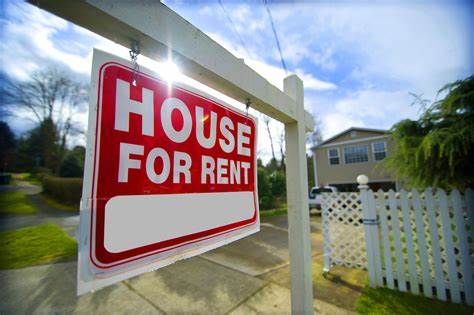Rent-to-own agreements, also known as lease options, can seem like an attractive option for individuals aspiring to own a home but facing financial constraints. However, beneath the surface, there lies a dirty little secret that prospective renters need to be aware of. There are a couple of options to consider before going into a rent-to-own agreement.
In this article, we'll delve into the intricacies of rent-to-own agreements, exploring their pros and cons, and shedding light on the potential pitfalls that tenants should be cautious of.

1. What is a Rent-to-Own Agreement?
A rent-to-own agreement is a contract between a landlord and tenant that allows the tenant to rent the property with the option to purchase it at a later date.
2. Understanding the Mechanism of Rent-to-Own
Tenants typically pay an upfront fee or additional monthly payments towards a future down payment. At the end of the lease term, they have the option to buy the property at a predetermined price.
3. The Pros and Cons of Rent-to-Own
Pros:
-
Provides an opportunity for tenants with poor credit to eventually own a home.
-
Allows tenants to lock in a purchase price, protecting against future market fluctuations.
Cons:
-
Higher monthly payments compared to traditional rentals.
-
If the tenant decides not to purchase the property, they forfeit the additional payments made.
4. Hidden Costs and Risks
Hidden Costs:
-
Maintenance and repair expenses may fall on the tenant.
-
Failure to maintain payments can result in eviction and loss of accumulated funds.
Risks:
-
Lack of equity buildup if the property value depreciates.
-
Risk of foreclosure if the landlord defaults on the mortgage.
5. Predatory Practices: Identifying Red Flags
Red Flags:
-
Unclear terms and conditions favoring the landlord.
-
Exorbitant upfront fees or inflated purchase prices.
6. Alternatives to Rent-to-Own
Alternatives:
-
Save for a conventional down payment.
-
Explore first-time homebuyer programs or government assistance.
7. Conducting Due Diligence: Protecting Yourself
Prior to entering a rent-to-own agreement, tenants should thoroughly research the property, market trends, and the landlord's reputation.
8. Seeking Legal Advice
Consulting with a real estate attorney can provide valuable insights and ensure that the terms of the agreement are fair and legally binding.
9. Conclusion
While rent-to-own agreements may offer a pathway to homeownership for some, they come with inherent risks and potential pitfalls. Prospective tenants must weigh the benefits against the drawbacks and proceed with caution.
10. FAQs (Frequently Asked Questions)
1. Are rent-to-own agreements suitable for everyone?
-
Rent-to-own agreements may benefit individuals with poor credit or limited savings, but they are not without risks. Prospective tenants should carefully evaluate their financial situation and consider alternative options.
2. What happens if I decide not to purchase the property at the end of the lease term?
-
If you choose not to purchase the property, you may forfeit the additional payments made towards the future down payment. It's essential to review the terms of the agreement and understand the implications of your decision.
3. How can I protect myself from predatory practices in rent-to-own agreements?
-
Conduct thorough research on the property, landlord, and terms of the agreement. Look out for red flags such as unclear terms, excessive fees, and inflated purchase prices. Seeking legal advice can also provide added protection.
4. What are some alternative paths to homeownership?
-
Alternative paths to homeownership include saving for a conventional down payment, exploring first-time homebuyer programs, and seeking government assistance. These options may offer more favorable terms and lower risks than rent-to-own agreements.
5. Is it advisable to enter into a rent-to-own agreement without seeking legal advice?
-
It's highly recommended to consult with a real estate attorney before entering any rent-to-own agreement. A legal expert can review the terms, identify potential risks, and ensure that your interests are protected throughout the process.




